Trade Packages for the No. 1 Pick In 2024 NBA Draft
Dan Favale@@danfavaleTrade Packages for the No. 1 Pick In 2024 NBA Draft

Will the No. 1 pick in the 2024 NBA draft get traded?
Every year, the answer to this question is some variation of "Hell no, but let's cook up some hypothetical deals anyway, if only for fun!" That may indeed be the prevailing party line now.
Counterpoint: Maybe not.
The Atlanta Hawks winning the 2024 NBA draft lottery—despite entering with just a 3 percent chance of doing so—throws a curveball into the proceedings.
They were already gearing up for a hectic summer. Will they deal Dejounte Murray? Trae Young? Both? Neither? What becomes of Clint Capela's expiring contract? And Saddiq Bey's restricted free agency? How much will Jalen Johnson get in an extension? Are they ready to usher in the Onyeka Okongwu-as-a-starter era on the frontline?
Landing the No. 1 pick opens up new possibilities—and adds a layer of confusion in the process.
Who's atop the Hawks' big board? Alex Sarr? Zaccharie Risacher? Nikola Topić? Does having No. 1 make it more likely they enter a full-tilt rebuild? What does that even look like?
Or as a team with one entrenched superstar (Young), fringe star (Murray), a 2024 Most Improved Player candidate (Johnson) and some capable depth, could Atlanta look to fast-track itself toward another blockbuster acquisition? Or perhaps break up the No. 1 overall selection into multiple assets?
Ahead of a draft class that lacks consensus, just about every scenario should be on the table for the Hawks. The trade packages that follow will reflect as much.
Brooklyn Begins Anew

The Trade
Atlanta Hawks Receive: Mikal Bridges, Dorian Finney-Smith, Phoenix's 2027 first-round pick, Memphis' 2028 second-round pick
Brooklyn Nets Receive: Clint Capela, No. 1 pick
Why The Hawks Do It
This package slingshots Atlanta out of the sub-middle and into the meat and potatoes of the Eastern Conference—all while restocking its asset pool.
Bridges will remain one of the league's premier bargains for the next two years and would infuse the rotation with excellent off-ball movement, secondary creation and defense that should tick back up toward All-NBA level once he's no longer the No. 1 offensive option. Finney-Smith would add yet another combo forward who doesn't demand the ball to Atlanta's ranks. Between him, Bridges, De'Andre Hunter, Onyeka Okongwu, Jalen Johnson and Murray (barring a trade), the Hawks could run out some hyper-versatile combinations.
Losing Capela would leave Atlanta without a true big, but that's OK. Rim-running rebounders can be approximated more easily than wing depth, and Okongwu, while not traditionally tall, is more than capable of sponging up additional minutes as the primary big.
Frankly, a core of Bridges, Murray, Johnson, Okongwu, DFS, Hunter, Bogdan Bogdanović and Trae Young kicks ass. The Hawks may have designs on getting cheaper or breaking up their backcourt this offseason, but this return would give them the option of pure addition rather than subtraction or recalibration. That 2027 Phoenix pick also has the potential to be juicy, both as an actual selection or trade asset.
Why The Nets Do It
General manager Sean Marks doesn't sound like someone who's prepared to shepherd the Nets through another rebuild. That makes (some) sense. Brooklyn doesn't control its own first-rounder until 2028, rendering another top-to-bottom reorientation galaxies from ideal.
Perhaps bagging the No. 1 pick would be enough to change the organization's tune. Marks and Co. would need to believe that Alex Sarr, Zaccharie Risacher, Nikola Topić or Reed Sheppard is a certifiable cornerstone, but that's the caveat of any high-end draft-pick pursuit.
This year's rookie class makes that call tougher. It's not impossible, though. Bridges won't be on a well-below-market contract forever. In fact, Brooklyn is one year away from grappling with his pre-agency (unless he signs an extension).
Landing a cost-controlled No. 1 pick for him, an expiring contract and might-be-great, might-be-nondescript Suns future first-rounder is a reasonable gambit for a team that doesn't have a clear path out of mediocrity as currently built.
Capela's inclusion here would largely be an afterthought, especially if Brooklyn selects Sarr. That's fine. He is entering the final year of his contract and could be rerouted or act as insurance against Nic Claxton pricing himself out of town during free agency.
San Antonio Loads Up Around Wemby

The Trade
Atlanta Hawks Receive: No. 4 pick, 2025 first-round pick (its own)
San Antonio Spurs Receive: No. 1 pick
Why The Hawks Do It
Moving down three spots requires the Hawks to believe there isn't much separating this year's top prospects—or for them to simply lack a preference. If the player whom they prefer projects to be available at No. 4, re-acquiring their own 2025 first-rounder would give them some runway heading into next season, diminishing the urgency with which they must operate over the summer.
Whether that's enough of an incentive is debatable. San Antonio also controls Atlanta's first-rounders in 2026 (swap) and 2027 (outright), so it's not like the Hawks suddenly have the license to start over without regard for draft obligations.
As an asset management play, though, this absolutely tracks. Atlanta would get a top-five prospect and carve out a (limited) window in which it can entertain more seismic changes ahead of the 2024-25 campaign without worrying about forfeiting a glitzy lottery selection next June.
Why The Spurs Do It
Because they're smitten by the idea of playing Victor Wembanyama alongside Alex Sarr. Or because they're enamored with pairing him and one of the other options and worried their favorite prospect will be scooped up by Atlanta, Washington (No. 2) or Houston (No. 3).
Sending back the Hawks' 2025 first-rounder may not sit right with the Spurs. But it wouldn't free Atlanta up to clean its entire slate willy-nilly. The Hawks would still have to worry about two additional obligations to San Antonio in the following years.
Unless the Hawks somehow parlay that 2025 first-rounder into a prospect or trade acquisition who obliterates the upside of their 2026 and 2027 picks, the Spurs would still be sitting on two massively appealing bites at the draft apple.
Portland Swings for Another Rebuilding Centerpiece

The Trade
Atlanta Hawks Receive: Matisse Thybulle, No. 7, No. 14
Detroit Pistons Receive: Clint Capela
Portland Trail Blazers Receive: No. 1 pick, 2027 second-round pick (less favorable from Brooklyn and Dallas, via Detroit)
Why The Hawks Do It
Breaking up the No. 1 pick into a mid-lottery selection, end-of-lottery choice and defensive specialist doesn't register as a can't-miss at first glance. Stare at it for a while, and, well, not much changes.
That's the challenge ahead of this draft. It's so difficult to figure out what the Hawks would be passing on by prioritizing cost-controlled depth rather than the could-be-anything shine of every top-five pick.
This is a deal you make if you aren't sold on anyone at the apex of your big board and you're looking to juggle long-term roster management with immediate expectations.
Thybulle showed signs of career-best marksmanship from three this season before tapering off, and Atlanta needs any reliable perimeter defensive activity it can get. His assignments skew smaller, which would create some redundancies if Dejounte Murray sticks around. But he can scale up to larger wings when called upon, and his contract balance is team-friendly (two years, $22.6 million; 2025-26 player option).
Banking two lottery picks would give the Hawks a pair of cost-controlled bodies to develop—a useful approach not only for their future, but for the here and now if they want to give this exact core one more go or poke around bigger-name acquisitions.
Why The Pistons Do It
Detroit can fairly effortlessly carve out more than $60 million in cap space this summer. Starting down the barrel of a lackluster free-agency class, that wiggle room may be best served taking on the semi-unwanted contracts of players who crack its rotation.
Capela fits that bill. At $22.3 million, he isn't being paid like a backup. But he'll be on an expiring contract, so the financial awkwardness would be temporary, if not a non-factor.
The Pistons could look to use him as matching salary in another trade at February's deadline, or they might end up appreciating his presence on the glass while finding utility in the rim-running he can provide when afforded enough space.
Why The Blazers Do It
To save a boatload of money that yanks them outside the luxury-tax territory in which they currently sit.
Oh, yeah: And to partner Scoot Henderson and Shaedon Sharpe with Alex Sarr (probably).
Yes, Deandre Ayton is already on this roster. That shouldn't matter. Sarr forecasts as someone with more stretch on offense and mobility on defense. Even if he isn't the Blazers' top choice, netting the No. 1 pick would allow them to head in whichever direction they please.
Forking over a second lottery pick might be unsettling when Portland is so early into its rebuild. Losing Thybulle's defensive peskiness would be a blow, too—particularly when the roster remains light on actual wings.
Still, we're talking about the No. 1 overall pick! This draft class may not be causing people to swoon, but snagging a tippy-top selection is never a bad thing. And if the early impressions of this rookie class let the Blazers ascend to first overall for an ultra-reasonable opportunity cost, they shouldn't hesitate to embrace the risk-reward profile.
Washington Removes All Guesswork from the Equation

The Trade
Atlanta Hawks Receive: No. 2 pick, No. 26 pick, Chicago's 2026 second-round pick
Washington Wizards Receive: No. 1 pick
Why The Hawks Do It
Because they know who the Wizards want, they don't want him, and they're looking to mine extra value out of the draft while still getting whomever they do want.
Picking up another late first-round pick and a second-rounder two years out to move down from No. 1 would be a non-starter in most years. This isn't most years, though. If the top of this draft genuinely lacks a consensus top prospect, the chance to secure another first-round pick on a cost-controlled rookie scale without torpedoing your own top-of-the-lottery interests would be a nice piece of business.
Accepting this offer would get harder if, say, Alex Sarr emerges as the clear-cut option.
Front offices with better track records and the job security that comes with them might move down anyway if they're more gaga over someone else. Hawks general manager Landry Fields doesn't exactly fall into this bucket. But again, for our purposes, we're taking the ambiguous and unflattering evaluations of this draft at face value.
Why The Wizards Do It
To get the No. 1 pick. Duh.
Coughing up another first-rounder to move up one spot in what might be an underwhelming draft and taking someone who may be available when you're on the clock anyway wouldn't be the most earth-shattering or sexiest play. So be it.
Washington wouldn't go into this attempting to stage a coup—a reverse Markelle Fultz-for-Jayson Tatum, if you will. It would make this trade because a late first-rounder and future second is a justifiable price to pay for determining your own fate.
If general manager Will Dawkins, team president Michael Winger and their scouting department believe there is a material difference between their top guy and everyone else, the chance to determine their own fate would go from luxury to potentially franchise-altering.
Atlanta and Detroit Get All Kinds of Weird

The Trade
Atlanta Hawks Receive: Jaden Ivey, Ausar Thompson, No. 5 pick
Detroit Pistons Receive: Dejounte Murray, No. 1 pick
Why The Hawks Do It
This profiles as a soft reset for Atlanta. It would bust up the Murray-Trae Young backcourt—which feels like a fait accompli at this point—and move the Hawks down four spots to end up with the past three No. 5 picks.
That might suggest the Hawks are tracking toward a full-scale rebuild. But this is more like a reorientation.
Thompson would arrive in Atlanta as a defensive monster, equal parts disruptive and deliberate. His shooting is nonexistent—and his rookie season ended early due to a blood clot—but the Hawks could cobble together enough scoring so long as Trae Young is still running the show.
Ivey isn't someone whom the Hawks could count on deploying beside other ball-dominant guards. He doesn't have the requisite shooting stroke to jell in that context as of now. But perhaps he looks better outside the cramped confines of Detroit's offense (and head coach Monty Williams' doghouse). Failing that, Atlanta could look to capitalize on whatever remaining value he has in a subsequent trade.
Drafting someone at No. 5 who promises to make an instant impact is a tall order, and neither Thompson nor Ivey is especially deep into their career. This move would mandate degrees of patience from Atlanta. But it should have a few interesting wings from which to choose at No. 5, and more importantly, it shouldn't be afraid of taking its time.
Resets, however soft, do not always materialize overnight. This package would give the Hawks a shot at reshuffling the makeup and long-term outlook of the supporting cast around Young. And if they're intent on moving him as well and completely starting over, this return would bring back enough developmental upside to offset the draft-pick equity they'll send to San Antonio from 2025 through 2027.
Why The Pistons Do It
Detroit will be angling for substantive improvement next season, no matter who's running the front office. Five consecutive years of winning 23 or fewer games has a way of grating on an organization. Between spending hefty amounts of money on Monty Williams, demoting front office czar Troy Weaver and entering Year 4 of the Cade Cunningham era, the Pistons are starting to feel the weight of their extended (if somewhat aimless) stint in the doldrums.
Armed with potentially more than $60 million in cap space, Detroit's inevitable remaking may mostly play out in free agency or via trades that latch onto proven performers, perhaps at the expense of its young core. This trade follows that line of thought—without too urgently accelerating the timeline.
Sending out Thompson would be a risk. Even without a jump shot, he injects All-NBA defense and some tertiary driving and ball movement. But Murray is a demonstrative spacing and floor-general upgrade over anything the Pistons already have in place, and he's about to kick off one of the league's most team-friendly extensions (four years, $114.1 million).
Grabbing the No. 1 pick, meanwhile, would allow Detroit to contemplate a possible Alex Sarr-Jalen Duren duo or target another wing whom it doesn't believe will be available at No. 5. This deal would lose luster from the Pistons' end if they don't think Sarr stretches the floor enough to preserve spacing beside another big, but Duren isn't nearly good enough to dictate how they build around Cunningham. If they believe in Sarr's prospective range—or are super high on Zaccharie Risacher—this is at least a conversation.
Jettisoning Ivey on top of Thompson would be tough to stomach. But the Pistons have to be realistic about his trade value. It likely isn't exorbitantly high, and it may only get worse unless they better tailor the roster to his on-ball strengths.
Burning a chunk of cap space on this package shouldn't bother Detroit, either. Murray is likely far better than anyone whom the Pistons can realistically sign, and this deal has them taking on under $15 million additional salary, leaving them plenty of maneuverability for both free agency and other trades.
Dan Favale covers the NBA for Bleacher Report. Follow him on Twitter (@danfavale), and subscribe to the Hardwood Knocks podcast, co-hosted by Bleacher Report's Grant Hughes.
Unless otherwise cited, stats courtesy of NBA.com, Basketball Reference, Stathead or Cleaning the Glass. Salary information via Spotrac. Draft-pick obligations via RealGM.
B/R Recommends
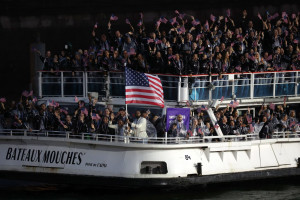
Viral Photo of LeBron James at Olympics' Opening Ceremonies Sparks Memes By NBA Fans
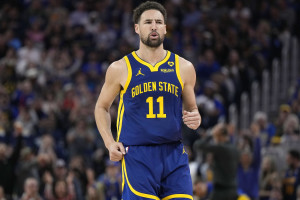
NBA Free-Agent Tracker 2024: Updates on All the Latest Contract Signings and Trades
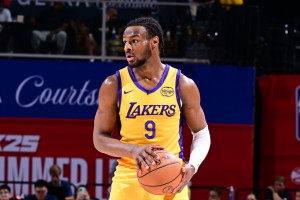
Grading Every NBA Team's Top Rookies at Las Vegas Summer League
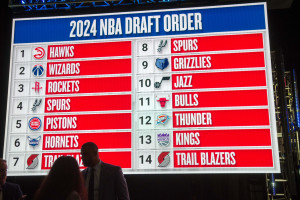
2024 NBA Draft Selections: Tracking the Full List of Picks and Results
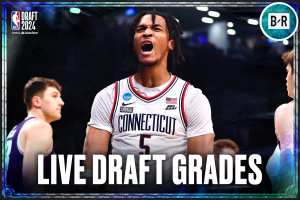
2024 NBA Draft: Live Grades for Every Round 1 Pick
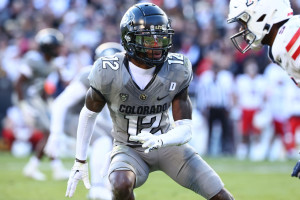
2025 NFL Mock Draft: Way-Too-Early Best Team Fits for Travis Hunter, Top Prospects
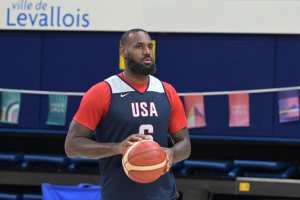
Photo: Lakers' LeBron James Debuts Nike LeBron 22 Shoe at Team USA Olympic Practice
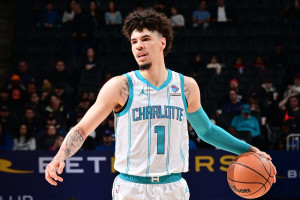
Blockbuster Trades We Can Still See Ahead of 2024-25 NBA Season
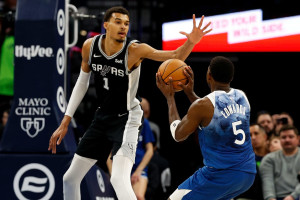
Ultimate NBA 5-Year Re-Draft Using 2019 Through 2023 Classes
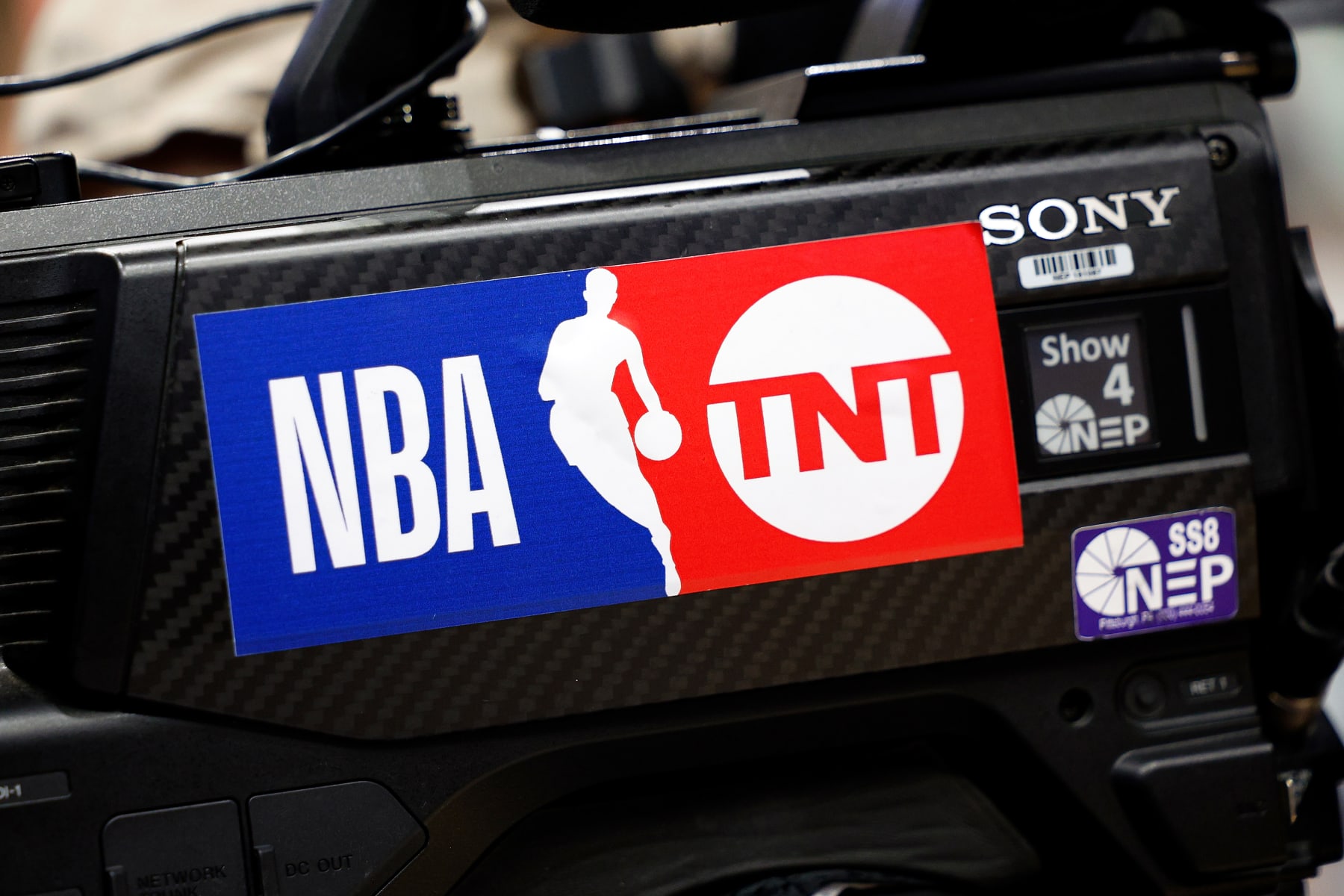
WBD Announces Decision to Match NBA Rights After Submitting Paperwork to League



